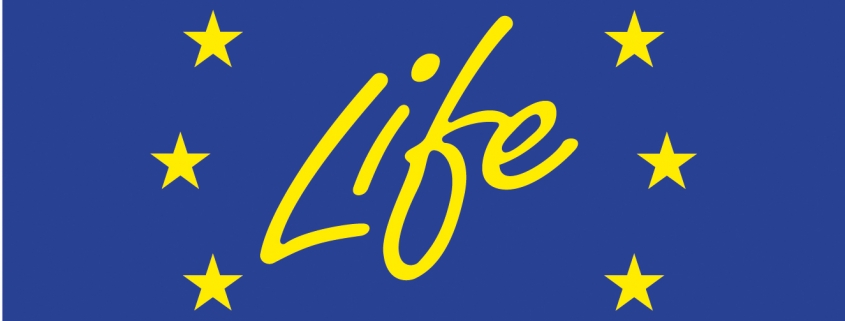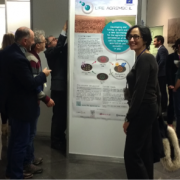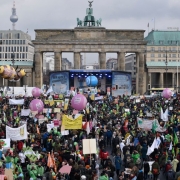EU budget: Commission proposes to increase funding to support the environment and climate action
For the next long-term EU budget 2021-2027, the Commission is proposing to increase funding by almost 60% for LIFE, the EU programme for the environment and climate action.
The LIFE programme is among the EU funding programmes for which the Commission is proposing the largest proportional increase, with a budget of €5.45 billion between 2021 and 2027. The Commission has integrated climate action into all major EU spending programmes, in particular cohesion policy, regional development, energy, transport, research and innovation, the Common Agricultural Policy as well as the EU’s development policy, making the EU budget a driver of sustainability. To implement the Paris Agreement and the commitment to the United Nations Sustainable Development Goals, the Commission proposes to raise the level of ambition for climate financing across all EU programmes, with at least 25% of EU expenditure contributing to climate objectives.
Commissioner for Environment Karmenu Vella said: “The EU is a global leader for environmental protection and climate action; where we spend our money should reflect this. With more funding, we can strengthen our LIFE programme to ensure that it can effectively contribute to protecting our environment and speeding up the transition to a clean, energy-efficient, low-carbon and climate-resilient economy – a priority of the Juncker Commission.”
Climate Action and Energy Commissioner Miguel Arias Cañete added: “A stronger LIFE programme will play an important role in expanding investments in climate action and clean energy across Europe. By continuing to support climate change mitigation and adaptation, LIFE will also continue to help the EU deliver on its climate goals and commitments under the Paris Agreement and the United Nations Sustainable Development Goals.”
The main features of the new LIFE programme are:
- An increased focus on clean energy: One of the main aims of the new LIFE programme is to stimulate investment and support activities focused on energy efficiency, especially in European regions lagging behind in the transition towards clean energy;
- An increased focus on nature and biodiversity: The new LIFE programme will support projects that promote best practices in relation to nature and biodiversity, as well as new, dedicated ‘Strategic Nature Projects’ for all Member States to help mainstream nature and biodiversity policy objectives into other policies and financing programmes, such as agriculture and rural development, ensuring a more coherent approach across sectors;
- Continued support of the circular economy and climate change mitigation: The new programme will continue to supportimportant EU policy objectives such as the transition to a circular economy, protecting and improving the quality of the EU’s air and water, implementing the 2030 energy and climate policy framework and meeting the Union’s commitments under the Paris Agreement on Climate Change;
- A simple and flexible approach: The new programme has been designed to be simpler, more flexible and to facilitate a broader geographical access. It will focus on developing and implementing innovative ways to respond to environment and climate challenges. It will also ensure sufficient flexibility to address new and critical priorities as they emerge during the programme’s duration.
Next Steps
A swift agreement on the overall long-term EU budget and its sectoral proposals is essential to ensure that EU funds start delivering results on the ground as soon as possible.
Delays similar to the ones experienced at the beginning of the current 2014-2020 budgetary period would mean that projects will not be able to start on time; that cities and regions will not receive the necessary funding to improve the quality of air and water for their citizens, to treat their waste properly or to address climate change and its impacts.
An agreement on the next long-term budget in 2019 would provide for a seamless transition between the current long-term budget (2014-2020) and the new one and would ensure predictability and continuity of funding to the benefit of all.
Background
Launched in 1992, the LIFE Programme is one of the spearheads of EU environmental and climate funding. It has financed over 4,500 projects, contributing €5.9 billion to environment protection and climate action. The present LIFE programme started in 2014 and runs until 2020, with a budget of €3.5 billion.
LIFE has played a significant role in the implementation of major EU environmental legislation including the Habitats and Birds Directives. The proposal for the new programme for 2021-2027 builds upon the results of the mid-term evaluation of the present programme as well as an impact assessment.
Source: http://ec.europa.eu/environment/life/news/press/index.htm#pr2018






